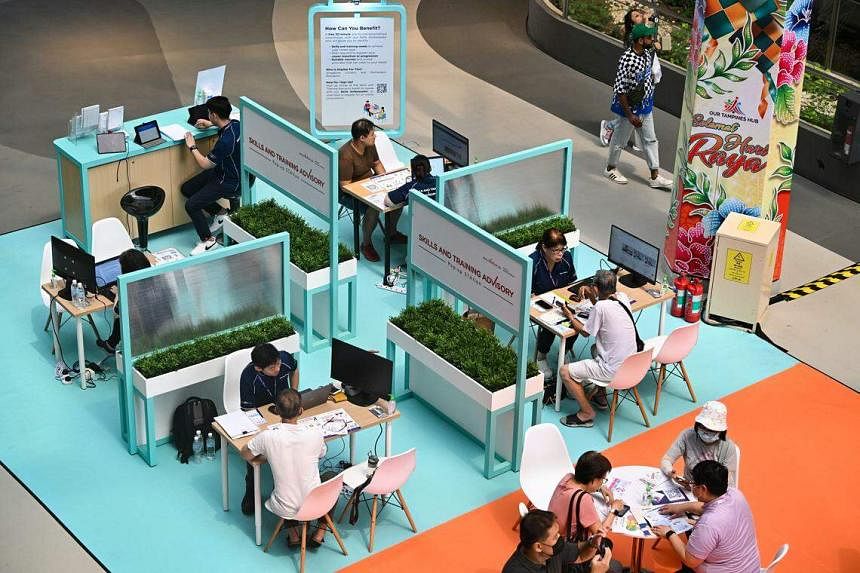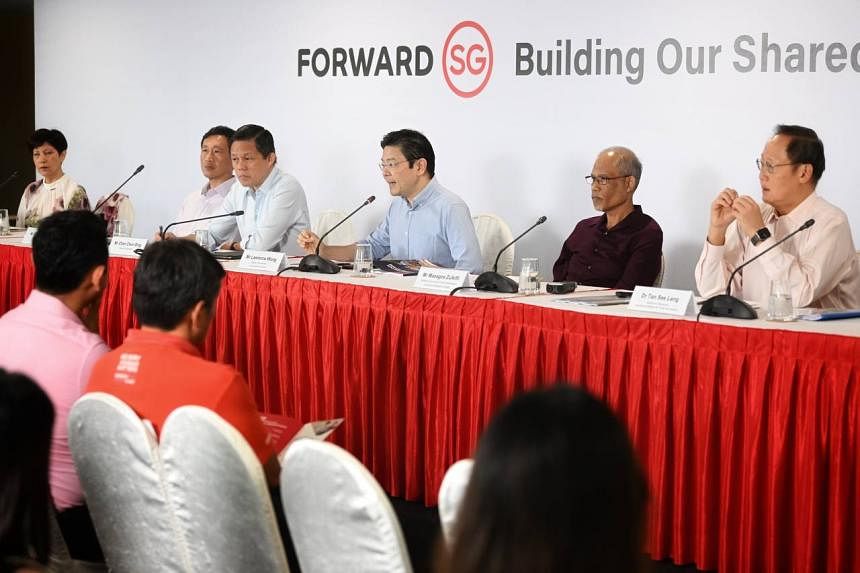SINGAPORE – The wage gap between skilled tradesmen and knowledge-based workers will be narrowed through structured training and career planning, while Institute of Technical Education (ITE) graduates will get help to upgrade their skills early in their careers.
These are among efforts to ensure that every job in Singapore is respected and fairly rewarded while cementing a culture of lifelong learning beyond grades, laid out in the broad plans for the areas of jobs and education in the Forward Singapore report released on Friday.
The Government will work with the National Trades Union Congress, industry associations and institutes of higher learning to put these plans in place, the report said. Examples of workers who stand to gain from the wage boost are plumbers, electricians and those working in the healthcare and aged-care sectors.
The report did not specify the healthcare and aged-care workers experiencing wage gaps, but latest Manpower Ministry figures released in July found that nursing aides and healthcare assistants earn a median gross salary of less than $3,000 a month – as do plumbers and electricians.
This is below the median gross monthly salary of $4,500 for full-time employed residents as at June 2022.
“We must do more to tilt the scales and narrow the wage gaps across professions,” the report said.
It said of skilled workers: “It takes time to hone these skills, and those who develop a deep mastery should be able to earn a good living... If society is more supportive of individuals pursuing these careers, we can create a virtuous cycle, where society in turn benefits from better and more reliable services.”
The support for ITE graduates comes amid widening gaps in starting salaries between these graduates and those from polytechnics and autonomous universities. “We are especially concerned about the growing gaps,” the report said.
These salary gaps can be narrowed over time if ITE graduates upgrade and refresh their skills, such as through getting a diploma or even more qualifications in their working years. Skills upgrading improves career prospects and salaries, and it is a case of the earlier, the better, the report noted.
“We will study how we can help younger ITE upgraders defray the costs of obtaining a diploma. When they graduate, we can also top up their Central Provident Fund to give them a head start to purchase a home or save for their retirement,” the report said.
Besides ITE graduates, Singaporeans who already hold a publicly funded diploma or higher qualification will also get help with obtaining another publicly funded diploma.
For the wider workforce, more significant investments will be made to support mature mid-career Singaporeans in pursuing substantive reskilling and upskilling.
Workers will also receive a “further, substantial top-up” of the SkillsFuture Credit, the report said.
A one-off top-up of $500 was given in 2020 to every Singaporean aged 25 and above, and another $500 specifically to Singaporeans aged 40 to 60 to improve access to career transition programmes.
Financial support is set to be further bolstered for mature mid-career Singaporeans, in the form of training allowances when they take time off for full-time training over a longer period.

Local talent aspiring to top regional or global roles will also receive more support in pursuing the needed overseas exposure for such roles before returning home.
“Singaporeans with families who take up overseas roles often worry about their children’s education and how they can adjust when they come back. We will find ways to help their children integrate smoothly back into our schools,” the report noted.
In the report, the Government also reiterated its plans to continue broadening the definition of merit and creating more diverse pathways in education, such as through exploring the use of adaptive learning technologies and artificial intelligence.
Mr Shaifulazli Ghazali, 45, a training instructor at ST Engineering, welcomed the additional support for ITE graduates and skilled tradesmen.
The ITE graduate started his career in 1999 as an apprentice, gaining a Nitec in aircraft maintenance along the way. He noted that the profile of ITE graduates has changed and they now have higher career expectations.
He said ITE graduates during his time were “timid and quiet”, and never thought they would be in leadership or training positions.
“(In contrast), my younger colleagues and interns who graduated recently are confident, and school has prepared them well for industry. They know to ask about sponsorship for further studies and their career progression.”
At a press conference on Friday, Minister for Manpower Tan See Leng said participants at the Forward SG engagement sessions wanted a wider definition of career success.
“So we came to this conclusion that the idea of a good job should not just be limited to white-collar jobs,” he said.
He reiterated the Government’s focus on empowering individuals to chart their careers and investing in Singaporeans gaining overseas exposure. Other priorities include reducing wage gaps, providing financial support for involuntarily unemployed workers and ensuring a financially secure retirement for Singaporeans.
He emphasised that a meaningful shift towards fairer, more inclusive and more harmonious workplaces requires tripartism, which is the three-way partnership between the Government, employers and the labour movement.
At the same press conference, Education Minister Chan Chun Sing said, about lifelong learning, that there must continue to be a diversity of pathways for people to realise their potential at different stages of life.
“We will have to embrace technology that allows our people to adapt their learning styles and learning speed according to their needs,” he said, adding that adult learners can look forward to “more accessible and affordable modules, and more personalised skills and career guidance”.


